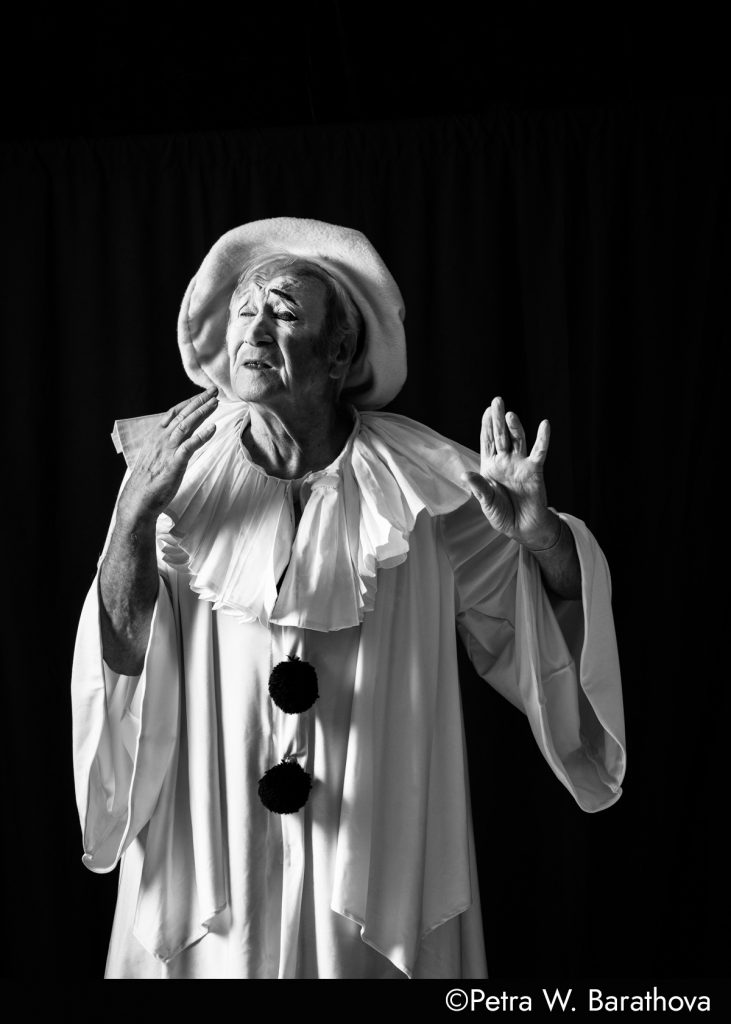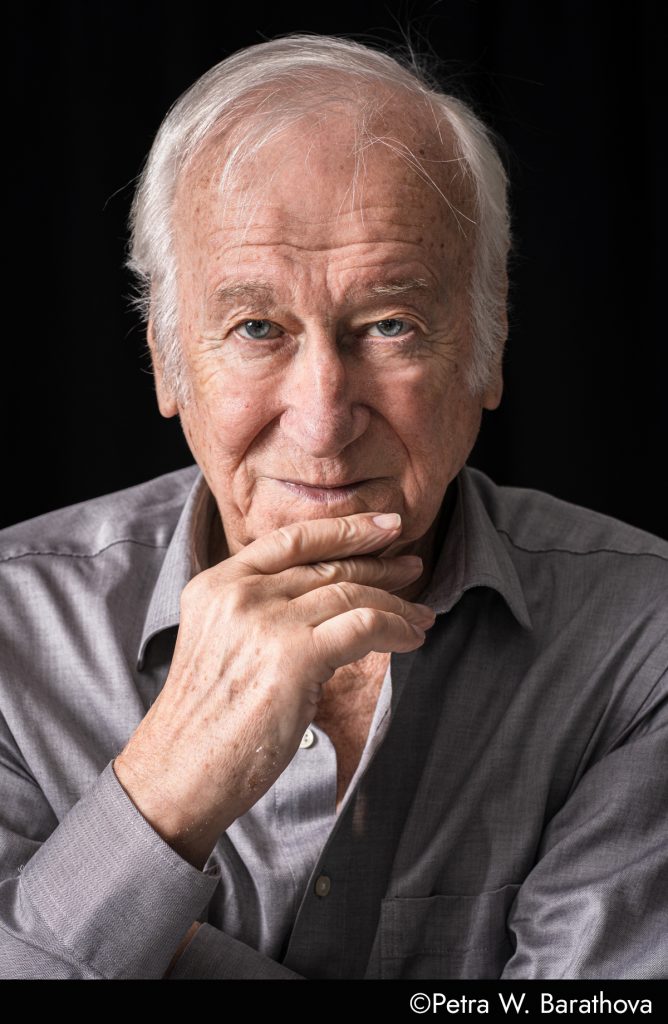
MILAN SLÁDEK *February 23, 1938, Streženice, Slovakia, †December 4, 2024, Cologne, Germany
Mime, Choreographer, Director and Educator Milan Sládek was first captivated by visual arts.
He attended the Bratislava School of Arts with a focus on wood carving, graduating in 1957 with a high school diploma. During his secondary school years, he also became interested in theater. He presented his first mime performances at the student theater of J. A. Komenský University in Bratislava. Milan Sládek continued his studies at the Theater Faculty of the Academy of Performing Arts in Bratislava, specializing in acting. In 1958, he premiered his first production, „An Evening of Mime,“ in Bratislava. In the following years, he became a student of Emil František Burian in Prague, a master of poetic theater and one of the most important founders of Czech avant-garde theater. Here, Sládek received his first professional engagement. He founded his first mime ensemble with Eduard Žlábek, a solo dancer and choreographer at Burian’s Theater „D34.“ On March 10, 1960, the pantomime comedy „Hrča“ / „The Beule“ premiered, introducing his fictional character „Kefka,“ Sládek’s alter ego, on stage for the first time.
Sládek’s approach to mime art differs significantly from that of French mime artists. Even in his early productions, he emphasized collaboration with his ensemble. The themes and expressive tools he chose for his productions shaped his mime style and personal expression, making his works unique and distinctive.
In 1962, Sládek returned to Bratislava with his ensemble, which became an independent group within the Slovak National Theater. His ensemble received invitations abroad, and over the years, they became regular guests at prestigious international festivals. In 1968, Milan Sládek took over the management of a theater studio in Bratislava, housing three ensembles under one roof – mime, cabaret, and drama. That same year, promising political events began during the „Prague Spring.“
On August 21, 1968, the armies of five Warsaw Pact countries invaded Czechoslovakia.
Milan Sládek left his country in 1968, moving with part of his ensemble to Sweden and later to West Germany in 1970. Cologne on the Rhine became his second home, offering him new creative opportunities. Mime art knows no language barriers, and Milan Sládek quickly adapted to his new environment.


Milan Sládek’s educational work mainly involved projects with young people. He regularly led workshops not only in his theater but also in many other countries. In 1987, he was appointed a professor and head of the mime department at Folkwang University of Music and Performing Arts in Essen. From 1979 to 2004, he worked as an instructor with the German-French Youth Office (DFJW/OFAJ), founded by Charles de Gaulle and Konrad Adenauer. After the fall of communism, Sládek returned to his homeland in 1989. In 1994, he became the director of the Arena Theater in Bratislava. He initiated the restoration of the historic arena building and led the newly established International Institute for Physical Theater until June 2002. That year, he left Bratislava and returned to Germany, where he continued to participate in various international projects from Cologne alongside his own artistic work.
In 2005, he staged „The Threepenny Opera“ in Tokyo. In 2006, he participated in the reconstruction of the premiere of W.A. Mozart’s pantomime „Pantalon and Columbine“ KV 446 for the Mozart Festival in Vienna. In January 2016, Sládek presented his production „Antigone“ at UNESCO in Paris, marking the first mime performance ever held at this institution.
MAIN PRIZES AND AWARDS
1963 – Ministry of Culture Prize, Prague
1965 – Grand Prix de Nancy, Nancy Theater Festival
1967 – First Prize for Directing, Istanbul Theater Festival
1968 – Ministry of Culture Prize for the 50th Anniversary of Czechoslovakia
1968 – Leopold Daniels Award, USA
1998 – „Zlatá bula“ (Golden Bull) of the City of Bratislava
2000 – Ľudovít Štúr Order, presented by Slovak President Rudolf Schuster
2000 – Federal Cross of Merit 1st Class, awarded by German President Johannes Rau
2009 – Lifetime Achievement Award, Gagy Festival, Slovakia
2016 – European Award „Trebbia Foundation,“ Prague
2017 – Bauturm Art Prize, City of Cologne
2018 – Silver Medal, presented by the Rector of the Academy of Performing Arts in Prague
2019 – Honorary Doctorate (Doctor h.c.), awarded by the Rector of the Academy of Performing Arts in Bratislava

